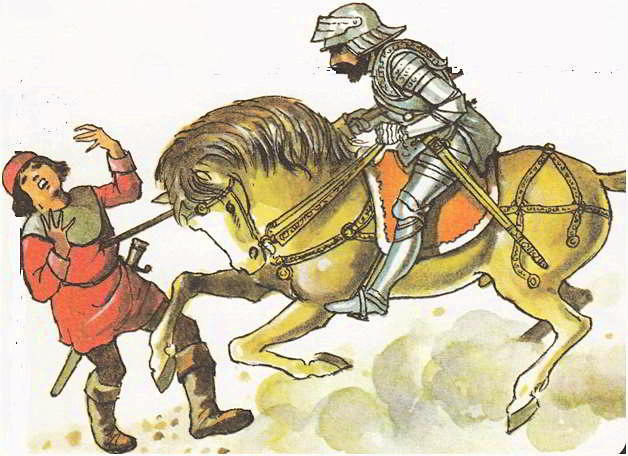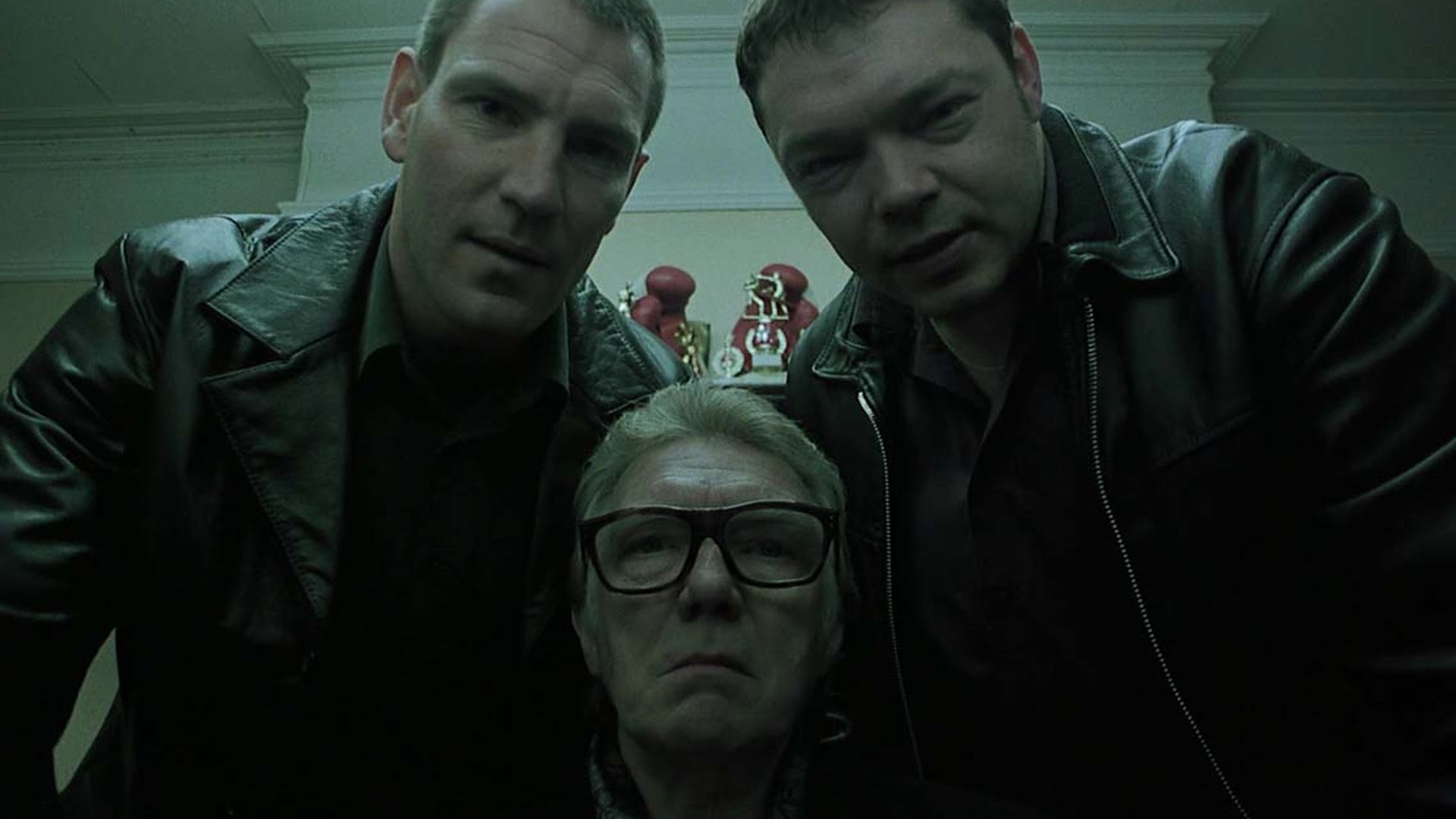English: Engineer's View
DISCLAIMER
I am an engineer by training, and I can hardly say that I know the language very well. I can read technical literature and specialty articles.
Here is the experience that pulled me out of the state of “reading with a dictionary.”

')
Hike most of the foreign language textbooks, which are taught schoolchildren, students are based on someone's doctoral. Even in technical (exact) sciences, doctoral studies are so-so, which is already happening in the humanities.
Take an item like English. There are a lot of concepts: 12 verb tenses, passive voice, participles, etc. Who introduced them? Apparently, some pundits for whom the English language was NATIVE. They lived in some Oxford or Cambridg and hardly knew Russian.
Accordingly, the English course they got unadapted under the Russian-speaking. The English grammar textbook tries to teach a person to speak from scratch again, ignoring the fact that he already speaks speech.
Remember how you studied Russian in school. Subject, predicate, addition, definition ... and 200 pieces of rules, of which a bunch of exceptions that are all safely forgotten, except for the actual Russian teachers. And which are then needed - the maximum - when disassembling with bureaucratic documents ("you can not execute mercy").
English grammar is the same - something academic and of little use when learning a language from scratch. For a person who can more or less freely connect a phrase from English words, you just need to learn new words.
But there are many people who do not even know how to dock; they have a level - “I read and translate the dictionary”, in the sense - “I look into the dictionary for every word from the text”.
In the absence of language practice, the skill of adding an English phrase from words is practically absent, which is a serious barrier to further study.
The article is focused on such.
Correct translation of Goblin

Usually, when they learn to translate from English, it requires a phrase that is “correct” from the point of view of a Russian person. Example
1) I do my work - I do my work (usually, regularly)Now - attention - look at the Russian translation. Options 1, 2, 4 are translated the same. “I do”, “I do” ... “I do” Explanation, what is the difference between these “do” is in brackets or in some muddy explanatory sentence, which at the time of speaking has not yet loaded into the head ... regularly "or" right now "...
2) I am doing my work - I am doing my job (for the moment)
3) I have done my work - I have done my job (by now)
4) I have been doing my work since 3 pm - I do my work in three hours.
1) BUT IN THE INITIAL ENGLISH TEXT THERE ARE NO ANY BRACKETS !!!
These brackets are a typical government turnover, from the category “We, the undersigned ... have drawn up this agreement (hereinafter - the Agreement) as follows ...” - attempts to prevent some sort of bureaucratic disassembly, but not exactly help to learn the language.
To an Englishman, all these “usually-regular” and “straight right now” are evident from the phrases themselves, without any additional explanation. The conclusion suggests only one - you need the correct translation, while maintaining the "English" logic.
2) Please note - am doing in textbooks strive to expose as “predicate”, consisting of two words, and translate in one verb - “do”, “am” - such as “not translated”. Similarly, have done - “made”, “have - also allegedly“ are not translated. ” Rather, “it is not translated without bureaucratic clashes.”
It is necessary to translate - in any case - preferably - EVERY WORD. It is the aggregate of information from EVERY word that allows us to obtain - without any brackets - the information we are interested in.
Simple group times
Present simple
English verbs in phrases are almost unchanged. "I do", "you do" and compare. Russian "I do," "you do." They are not familiar with the majority of complex Russian declensions-conjugations-persons-numbers. Therefore, the “correct” translation of such verbs suggests itself - ALWAYS in an indefinite form.
do is not “do,” “do,” “do.” Do it".
I do - I DORed - subject, green - predicate.
You do - You DO
I think - I THINK
I want - I WANT
Those who remember the "anecdotes about the Chukchi" should know the catch phrases like "I don’t understand yours." This is something close to the inhabitants of the capital of Great Britain. If the phrase “I do” sounds crazy to you, try saying “My do”.

Such a “Chukchi language” is the time of the Simple group. Let's practice translation.
" I want to finish my job."Yes, this is wrong, yes, non-literary, but on the other hand all the legal issues go into oblivion and the logic becomes clear.
Translate. Turn on the "inner Chukchi".
" My want to finish my job"
I want to end my work
Of course, no one forces all the time to speak and think so. In fact, it is still easier for a Russian person to think, inclining and conjugating everything “in Russian”. Therefore, we will not always follow the “Chukchi rule” literally. The Chukchi also sometimes manages to conjugate words correctly, but then gets lost. Getting off - when learning a language - NORMAL. This is a sign of mental work.
Now we change at times. Times in the English language THREE. Not 12, but 3 !!! As in Russian. 12 of them became due to the Boltology Doctors, concerned about their career and salary.
Future simple
Future time. We add to the verb will. There is a noun will - "will." So, probably, the correct translation will in such phrases is “deign”. (and even for an inanimate object ... like among savages, who believe that even stones have reason).
I will do my work [optional] - tomorrow, in the next year etc.]If you carefully read the phrase, you can see that the future tense is in fact the present. Someone PROMISES IN THE PRESENT to do something. Or himself, or from under the stick.
I WILL make my work. [optional - tomorrow, next year, etc.]
There is still shall. For some reason this word is also not translated, although it should be. shall - OBLIGED
I shall do my work - I WILL do my work.
When will need to be used, and when shall?
I shall - says the slave. He is obliged by definition.
I will - says his Excellency. He is able to oblige anyone.

Past simple
Past time
I did my work [optional] - yesterday, at last week etc.]Especially pay attention to all these explanations in square brackets, marked as "optional." They are really optional. Do not think that the Englishman, opening his mouth “I will do my work ...” begins to frantically think - “damn, at what time I say ... oh yeah !! .. in Future Simple! What is there in the textbook? It is necessary to add an explanation - tomorrow! on the trail. week! .. how will it be in English?
I was doing my job. [optional - yesterday, last week, etc.]
No, everything is much simpler - a person follows the path of minimal resistance. The purpose of many conversations - pure grind for life. If your interlocutor after your sworn assurance "I will do my work" was silent and no longer bothers you with your stupid questions - it means that you said everything correctly ...
Communion and passive voice
A little from my personal experience: for a long time I could not understand (memorize) the principles of using all these difficult tenses of verbs such as Continious, Perfect, Prefect Continious ... At the same time, I could not get to these fucking participles for a long time, and did not even study this material. It turned out in vain. It turned out that it is precisely with participation and it is necessary to study the "tenses" of the verbs. Because all the mechanics are revealed there.
Real participle
The word ending in –ing is a real participle - “what”, “what does” or “what is doing”. The action is performed by the object itself, at will.
" A girl is a CLOTHING doll."I deliberately translated in wooden Chukchi form in order to affect all the words with the translation.
" The girl is dressing up her doll"
I like to see SMILING faces - I like to see SMILEING facesPay attention to the subject and predicate. This is the usual Simple. “I like something there”, “They ARE any there”, “The boy IS someone there” ...
They are WORKING now - They are WORKING now
SITTING at the table is her brother - the boy SITTING at the table IS her brother.
Primitive horror phrases in the style of "London IS the capital of Great Britain."
Passive communion
This is what is called the 3rd verb form. The word ending in ed, or taken from a special plate, which needs to be jagged, or better - just read different texts and remember with your eyes. Answers the question “what is being done” or “what”. Indicates that the subject of speech has entered such a state not on its own accord.
"A doll is a DRESSED girl".Participle II (past participle)
" A doll is dressed up by the girl"
1.1 I have just the BOUGHT ticket to the cinema - I have just bought a movie ticket
1.2 The stone THROWN by the boy reached the opposite bank - a stone THROWN [thereby] the boy flew to the opposite bank
1.3 Here is the gift RECEIVED from Ann - This is a gift RECEIVED from Anna.
Passive Voice (Passive Voice)
2.1 This book can be BOUGHT in any bookshop - This book can be PURCHASED at any bookstoreDo you see the difference in the examples of groups 1 and 2 above? I - not really. And there, and there is some kind of sentence with the participle in the role of definition. Someone of some kind, of some kind of ... of being of some kind ...
2.2 The bridge will be BUILT next year - The bridge will be BUILT next year
2.3 A lot of different books are PUBLISHED in our country every year - many different books are PUBLISHED in our country every year.
2.4 The letter was SENT by my sister - The letter was SENT by my sister
2.5 The house was BUILT last year - the house was BUILT last year
TICKET BOOKED, STONE REBENCHED stone, gift RECEIVED
then again - to be PURCHASED, to be BUILT, to be PUBLISHED, to be SENT, to be BUILT….
Next to these turns is some kind of stupid basic sentence with a verb in Simple form.
“I have”, “The stone flew by”, “There is a gift”, “The book can be”, then “the bridge will be”, again “the book is there”, “the letter was”, “the house was” ...
Do you have exactly so bad English that you don’t know how to speak with such primitive sentences? "Che is something." "Someone was somehow."
Once again (I intentionally write not quite “competently” in Russian):
" London is the capital of Great Britain and was founded by the ancient Romans in 43 AD."But linguists, for some reason they saw, called the first block Participle II (past participle), and the second Passive Voice (passive voice). Why did it have to do, I did not understand.
It is the capital of Great Britain
Now the second is the most important spoiler.
All other verb tenses are simply well-established speech constructs with participles.
They do not differ in principle from what was discussed above.
Continental Group Times
Suppose that you just got such a witty figure who got to the bottom of you. You will do you work, he says, but but what ?! When exactly will you do your job, eh !?
In order not to "respond", the times of the group Continious are used.

Present continuous
I am a student - I am a studentFirst, I am translated in all three phrases in the same way - I AM (I AM - in the sense of existence). I (I) is the subject (who does), IS (am) - the predicate (what does).
I am a human - I AM a man
Now translate the phrase
I am doing my work - ???
So it was in the first two phrases and in the third the same. The third word is NOT a VERGE. This is a part of speech closer to the noun. It explains WHAT, in fact, exists.
In the first case, Mr. I exist as a student.
In the second case, Mr. I exist as a MAN.
In the third case, Mr. I exist , as DOING YOUR WORK
doing - doing.
I am doing my work
I AM doing my job.
Once again, doing is NOT a VERGE and does not mean ACTION. The action here is EXISTENCE (to be: am, is, are) - in all three cases. The word number 3 in such phrases means a certain subject - the ESSENCE of EXISTENCE. A person, student, worker, ... or doing .... or thinking ... or chewing ... or typing on the keyboard.
Someone IS something.
London IS the capital of Great Britain.
The easiest way to translate a word is with -ing as a real participle. This part of the speech answers the question “what does”. Thinking, running, swimming ...
Spoiler header
There are also cases when this very word with –ing stands apart from everything. Then it answers the question “what is doing?” ... Usually it is something sporting. Snowboarding, base jumping, surfing ... Well, or swimming pool - swimming pool ("pool for what doing? For swimming")
Now let's go at times. We just had the present tense.
I am doing my work
How will the future and the past?
The easiest way to remember is that only am (to be) is a verb here. And only am here will change. Everything else will remain the same. will be = deign to be = will
Future future
Future time.
I will be a student - I deign to be a student
I will be a human - I deign to be a man
I will be doing my work - I deign to be doing my work
Past continious
Past time.
I was a student - I was a studentIt is clearly seen from here that there is in fact no Continious time. This is the same Simple, only banana with a valid participle. And it changes from time to time just like Simple.
I was a human - I was a man
I was doing my work - I was doing my work
Someone IS something.So what is the difference between Simple and Continious? How to use it?
Someone WAS something.
Someone WILL be something.
Recall that persistent activist (A). Suppose he talks with the Chukchi (W). He is asking:
A: Do you work? (Do you work?)
D: Doo, dooo, Chukchi to work! (Yes, I do !!)
The activist sees that the Chukchi is sitting and doing nothing
A: WTF?
Ch: Chukchi to work! (I work !!) Chukchi is employed! Every Monday of the third month tundra deer graze!
As you can see, a complete misunderstanding. Continious is needed in order to avoid such situations. In fact, this is just an extra pathos.
D: I am doing my work now! (I am doing my job now!) * The Chukchi diligently chops wood and builds the chum *
The word IS (to be) is a special word. It is more pathetic than many other verbs. Being, to exist - the foundation of the foundations, at all times. London IS the capital of Great Britain.A person can say “I work” without working at the moment. But it is harder for him to give up his words if he says “I AM DOING my job”. This design emphasizes the importance, diligence, significance, control over the process. To be, to eat is extremely important.
That is why such a phrase has a stable translation “I am doing (at the moment)”
For phrases like I will be doing my work and I was doing my work, it is better to additionally say exactly when. tomorrow or yesterday. At 7 am etc. Why? Because I will ... was ... it is still something uncertain.
It turns out, all the pathos disappears. I will be doing my work without specifying the time sounds the same as I will do my work. "I will be doing my work ... I deign to do my work ..."
And so, and so it sounds like an empty promise.
And Continius is a solid, impressive, even somewhat official phrase. I will be doing my work tomorrow at 7 am A gentleman's word.
Perfect band times
Present perfect
Immediately spoiler. There is no perfect. There is all the same Simple, only with pathos.

I have a cat - I have a catI - subject, have (have) - predicate.
I have a money - I have money
Let's try to translate
I have done my work - I have done my workEverything is exactly the same as before. At first, why have? Verb to have - have - special. He is more pretentious than the rest. He is almost as pathetic as to be - to be.
There are even more hardcore translation options:
I have done my job.
I am done my job. [approx. - more literary]
In essence, they have a meaning close to the verb to be, because to have (have) = someone IS something (to be). I have a cat = I HAVE a cat.
They have a money - they HAVE money.
HAVE money / book / cat / work done / etc - VERY important in real life. Probably that is why to have so rooted in these phrases.Now let's go to done.
* This is NOT a verb.
* For some reason, it is called the 3rd form of the verb, but this is NOT a verb, at least for Russian. * This is a passive communion. Work is done. Work is done. In short, it is a relative of the APPLICANT. Answers the question "what?", "What?"
* This is never a selbri. If you need predicate, we are looking for a piece from Simple in the sentence. am, is, are, have ... and all sorts of ordinary verbs like to work, to do, etc. In this case, the predicate train have (will have, had).
Now at times. Fly to the future
Future perfect
I will have a cat - I will have a catAnd now to the past
I will have a money - I will have money
I will have done my work - I will have my work done
Past perfect
I had a cat - I had a catIt is also desirable to specify the time. I will have done my work in 15 minutes. I had done my work yesterday.
I had a money - I had money
I had done my work - I had done my work.
Why specify the time? Again, so that the pathos is not in vain. Otherwise, there is no particular difference with the usual I will do my work. This is not the specifics of a gentleman, these are the words of a lazy clown.
Chukchi will do the work. || Chukchi will have his work done.
Do you see the difference? Not really, right? Chukcha feeds breakfast and empty promises. Probably, if they do the work, it will be done sometime, right? Not every kind of activity - labor of Sisyphus?
That's how:
Chukchi will have a job done tomorrow at 7 in the morning.
This is already clear that the employee is focused on results. Chukchi - the right kid and is responsible for the words. Perfect. The unity of form and content.
Perfect Group Times
This is such a hybrid bulldog with rhinoceros. At the heart - all the same Simple. I have a money / smth else.
I have been doing my work all month
I managed to translate into Russian as follows:
I have been in the state of doing my job all month.
In the past time
Past perfect continious
I had been doing my work last monthIn the future tense
I have been in the state of doing my work [in] last month
Future Perfect Continious
I will have been doing my work next monthIn short, this is such a turn of speech, based on the Perfect with the word been - abiding in the state. The word was used outside this speech circulation.
I will be in a position to do my work next month.
had been known - literally something like: “there was one who was in a state of fame”
findings
1) English is based on Simple - constructions that are “childish” phrases “I think ..” “I run”, “stone to fall!”,
2) Communion (really - “what does "And passive -" what is being done ") are used in Simple-constructions as an auxiliary element (" the house was built "," I am working ").
3) The most frequently used revolutions with participles by linguists were singled out separately in the so-called. “Additional verb tenses”. In this case, the explanation of how one group of speech turns differs from other groups of speech turns, which is extremely cumbersome and completely unused in direct reading / speaking.
In short, they create a more “adult” and “solid” color in their speech, demonstrating persistence in work, responsibility for the result, etc. "I am working now."
4) It is necessary to learn the tenses of verbs from participles and Simple-constructions, all the difficult times of the vows are then studied much easier.
Well, of course, speech practice, etc. nobody canceled.
Visit Capital of Great Britain
UPD for some comments.
Hidden text
1. — .
) , , . — .
) exception « », LITE: am, is, are, to be «», have «», , , -ing «-», «-»
) exception, FULL: (« , , »), — — will/shall /.
! FULL LITE, . , .
! , 3-4 , , .
exception , « ».
LITE .
2. — . — - , .
— , , - , . . « ».
: - , , - , . , «» , , .
3. will/shall — /: . : , , «You shall not pass», « ». . . . « ».
shall : , , - shall. « ?» « ?» « ?»
4. , « » .
:
— — - . - -.
— , , « , ?»
— - -, . , . , — - , . — . .
: Batman Beyond ( Return of the Joker ) Spider Man 1992 , GI Joe Exo Squad.
) , , . — .
) exception « », LITE: am, is, are, to be «», have «», , , -ing «-», «-»
) exception, FULL: (« , , »), — — will/shall /.
! FULL LITE, . , .
! , 3-4 , , .
exception , « ».
LITE .
2. — . — - , .
— , , - , . . « ».
: - , , - , . , «» , , .
3. will/shall — /: . : , , «You shall not pass», « ». . . . « ».
shall : , , - shall. « ?» « ?» « ?»
4. , « » .
:
— — - . - -.
— , , « , ?»
— - -, . , . , — - , . — . .
: Batman Beyond ( Return of the Joker ) Spider Man 1992 , GI Joe Exo Squad.
UPD2: corrected some more typos, which were written in the comments. Thank!
Source: https://habr.com/ru/post/417999/
All Articles